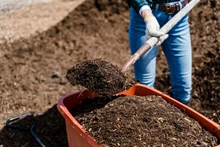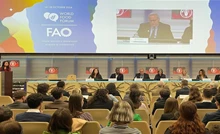
The workshop was jointly organized by the Cereal Systems Initiative for South Asia (CSISA), a regional program of Excellence in Agronomy (EiA), Transforming Agrifood Systems in South Asia (TAFSSA), and the Indian Council of Agricultural Research-Central Research Institute for Dryland Agriculture (ICAR-CRIDA), Hyderabad.
The workshop was attended by experts from prominent agencies such as IRRI, International Maize and Wheat Improvement Center (CIMMYT), International Crops Research Institute for the Semi-Arid Tropics (ICRISAT), ICAR-CRIDA, ICAR Research Complex for Eastern Region (ICAR-RCER), Indian Agricultural Research Institute (IARI), Krishi Vigyan Kendras (KVKs) of Uttar Pradesh & Bihar, Bihar Agriculture University (Sabour), and Cornell University, advocating the role of agronomy could play in the development of regional strategies for climate change adaptation. CRIDA Director Dr. V. K. Singh, CIMMYT CSISA Lead Dr. Peter Craufurd, ICAR-CRIDA Principal Scientist Dr. B. M. K. Raju, ICAR-RCER Director Dr. Anup Das, ICRISAT Global Director Dr. M. L. Jat, IARI Agronomy Division Head Dr. S. S. Rathore, ISARC Director Dr. Sudhanshu Singh, and EiA Regional Lead and IRRI Principal Scientist (Weed Science and Systems Agronomy) Dr. Virender Kumar were also present at the event.
Briefing the interventions of EiA, Dr. Virender Kumar said, “As part of its mandate, EiA intends to undertake stakeholder consultations/workshops to understand the priority areas of interventions to address production constraints and emerging challenges confronting smallholder farmers within Bihar and the eastern IndoGangetic Plain region. The prioritization is targeted to consider the climate adaptation and mitigation options based on the potential hazards, as well as sustainable intensification practices relevant to di erent crops and cropping systems in the region. In this context, EiA-CSISA and ICAR-CRIDA started building a participatory approach in co-designing and developing implementation plans in Bihar and eastern Uttar Pradesh”.
ISARC Director Dr. Sudhanshu Singh expressed his gratitude to the organizing agencies for entrusting ISARC to host the event. “PAiCE (Prioritizing Agronomy in Changing
Environments) is an interactive tool developed to aid in the prioritization process of mitigating climatic hazards and the identification of adaptation options. It is built around four modules, of which two modules deal with the system characterization of key crops based on their area and economic value of production and the identification and prioritization of major climatic challenges and hazards for each crop and season. Today’s workshop would lead to a discussion on multidimensional adaptation strategies based on the impact, cost, and value of potential adaptation options to harness maximum benefits for specific regions and crops.”, said Dr. Sudhanshu while explaining the different modules under the PAiCE tool.
On behalf of IRRI, he also conveyed strong commitment and constant support in transforming agri-food systems and promoting sustainable development.
Addressing the event, ICAR-CRIDA Director Dr. V. K. Singh firstly appreciated the world-class and technologically advanced scientific facilities available at ISARC that could help the stakeholders associated with IRRI in accelerating and scaling their knowledge and services. “We are highly thankful to ISARC for hosting this workshop, providing an excellent platform for the distinguished agronomy experts from di erent agencies across South Asia to interact among themselves and discuss the third module of the PAiCE tool. The main objectives of the workshop are to identify the potential adaptation options, evaluate them, and validate them for prioritization. This is the fourth workshop we are having to converse the di erent modules. I am hopeful that at the end of the workshop, we will have an e cient and validated module for the eastern IGP (Bihar and UP)”, Dr. Singh remarked.
Emphasizing the importance of research tools, Dr. Peter Crafurd said, “The speed of climate change is accelerating, often in unpredictable ways and increasing climate resilience will pay dividends now and as a foundation for long-term adaptation. Collectively, testing assumptions and marshaling evidence for specific response options will build consensus and coherence across research, development, and policy networks. Disaggregating R&D, scaling, and risk transfer priorities will help make the most of public and private sector investment, and the clearly articulated priorities for specific production ecology contexts will empower rapid adaptation transitions”.
Appealing for collaborative efforts in developing the modules, ICAR-RCER Director Dr. Anup Das encouraged the national and international stakeholders to convene and explore opportunities for improving crop production and management options.
Later, the participants of the workshop interacted and reviewed the third module of the PAiCE tool and presented their insights, and perceptions on the various adaptation options to deal with the climatic challenges faced by the farmers in eastern UP and Bihar, based on their socio-economic feasibility, environmental concerns, etc.
The event ended with the concluding remarks by Dr. Virender Kumar and Dr. Peter Craufurd.











